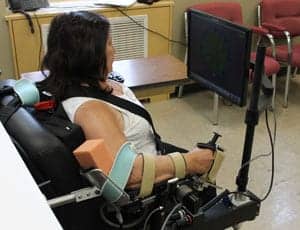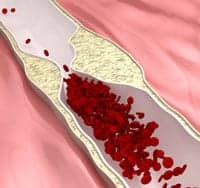
According to a release from the institute, the clinic will feature two types of robots, designed by Massachusetts Institute of Technology. The robots are engineered to provide customized, goal-directed therapy aimed at building arm function, strength, and re-training of the nerves from the brain to body connection. The first of the robots, the Planar Robot, is intended to focus on shoulder and elbow function. The second robot, the Wrist Robot, aims to help patients regain function and strengthen the wrist and forearm. The release reports that as the patient’s actions become more accurate and stronger in their movement patterns, the robots will adjust to require the patient to initiate additional movement.
Dylan Edwards, PhD, director of the new Restorative Neurology Clinic, current director of Burke’s Brain Stimulation and Robotics research program, states, “It is our intention that over time, we will be able to offer other state of the art therapies beyond robotics and firmly establish Burke as the place for advanced therapies.”
The clinic will be offering 6-week intensive workshops, Burke says, intended for individuals who do not qualify for current research programs yet have arm or hand weakness as a result of a neurological illness or injury. The first of these workshops is slated for April and will be ongoing throughout the year.
The release notes that the Restorative Neurology Clinic is appropriate for individuals with decreased range of motion caused by neurological illness or injury such as stroke, spinal cord injury (SCI), and individual’s whose motor recovery has stalled.
For more information contact [email protected]
Source: Burke Medical Research Institute




